MIT SCHOOL OF HUMANITIES, ARTS, AND SOCIAL SCIENCES
Media + Awards Digest | August 2020
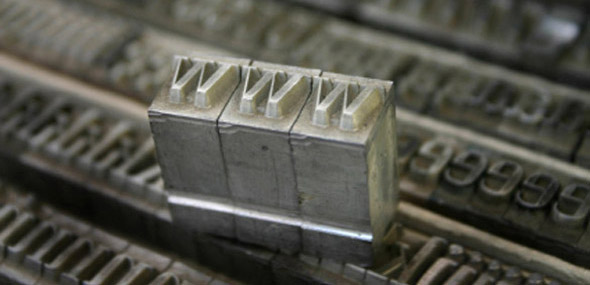
The Media + Awards Digest is a section of the Said and Done newsletter. Subscribe
Office of the Dean | 13 August 2020
Dear Friends,
As the last weeks of summer commence, our nation continues to reckon with a tangle of interrelated troubles — climate change, an uncontrolled pandemic, systemic racism, unemployment and economic inequities — solutions to which are hampered by deep divisions in the country's political and cultural ethos.
In this circumstance, so challenging to us individually and as a people, I have enormous respect and gratitude for the dedicated scholars who make up MIT's humanistic community. In a season awash in confusion, they are steady voices of reason, clarity, and compassion — providing analysis and insight for the way forward. In this edition of the Media Digest you’ll find the most recent contributions to the national discourse via our faculty’s media engagements. To highlight just a few:
Political scientist and election expert Charles Stewart III and a legion of the nation's election researchers and administrators continue intense work to make all forms of voting as safe, secure, inclusive, and effective as possible during this pandemic year. Stewart most recently shared new research that alerts voters and election administrators to the higher rate of "lost votes" with mail-in voting, and says, "If I were advising someone at a lower health risk, I would say think about early in-person voting. But go early... don't wait until the last minute."
On NPR, Justin Reich, director of the MIT Teaching Systems Lab, has been regularly sharing his expertise on remote learning, and offering research-based, practical suggestions for teaching this fall. Historian and engineer David Mindell’s latest Forbes commentary discusses the effect of autonomous vehicles on the future of work. Economist David Autor, Mindell’s co-leader on MIT’s Task Force for the Work of the Future, joined WBUR's "Morning Edition" to discuss how today’s cities are no longer a sure pathway to prosperity as housing costs rise and jobs opportunities disappear for middle-class workers, especially people of color.
Political scientist Taylor Fravel, director of our Security Studies Program, continues to add insight on China’s maritime claims across the South China Sea, and Richard Samuels, Director of the Center for International Studies, reviews a recent book, Unconditional, for The New York Times, lauding it as “a sharp reminder of the power, imperfection, and politicization of historical narrative — and of the way debates can continue long after history’s witnesses have left the stage.”
In the Boston Review, anthropologist Amy Moran-Thomas analyzes the racial bias encoded in the design of standard pulse oximeters. And, historian of science Robin Wolfe Scheffler writes in The Washington Post that "vaccine development can’t come in a vacuum. It needs to be combined with addressing the social and political factors that exacerbate disease and limit the access of many Americans to basic medical care.”
I take heart from these and many other ongoing efforts in our community to make a more livable and equitable world, and hope you will find both interest and inspiration in the following entries.
With very best wishes,
Melissa
Melissa Nobles
Kenan Sahin Dean
Professor of Political Science
MIT School of Humanities, Arts, and Social Sciences
HONORS AND AWARDS
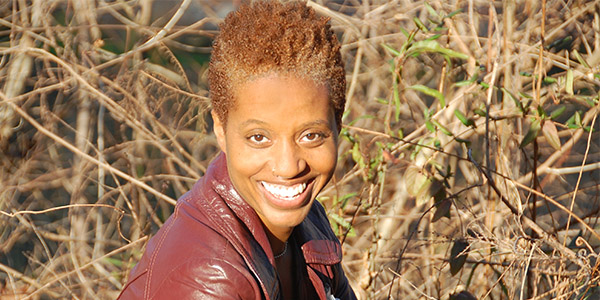
Tara Roberts; photo via National Geographic
OPEN DOCUMENTARY LAB
Tara Roberts named 2020-2021 National Geographic Storytelling Fellow
The National Geographic Society’s nine new Storytelling Fellows will embark upon a year-long project to explore timely issues the world needs to hear using a variety of storytelling mediums.
Announcement | About Tara Roberts
ECONOMICS
Amy Finkelstein named a Corresponding Fellow of the British Academy
The British Academy welcomes Finkelstein, the John and Jennie S. MacDonald Professor of Economics, to its world-leading Fellowship, in recognition of outstanding contributions to subjects within the humanities and social sciences.
Announcement from the British Academy
LITERATURE, ANTHROPOLOGY, GLOBAL LANGUAGES, HISTORY
Six SHASS faculty recieve a 2020 Teaching with Digital Technology Award
Maria Khotimsky, Graham Jones, Malick Ghachem, Marah Gubar, Stefan Helmreich, Isadora Nicholas, and 25 other instructors were honored with Teaching with Digital Technology Awards in 2020. They represent the resilient, innovative, compassionate MIT community at its best.
Story at MIT Open Learning
POLITICAL SCIENCE | SECURITY STUDIES PROGRAM
Erik Lin-Greenberg named to 2020 LGBTQIA+ Out Leadership List
A collaboration of New America and Out In National Security, the list honors 40 experts in U.S. national security and foreign policy currently serving in government, the military, think tanks, academia, non-governmental organizations, and the media.
National Security 2020 Out Leadership
MEDIA DIGEST
MAKING A JUST SOCIETY
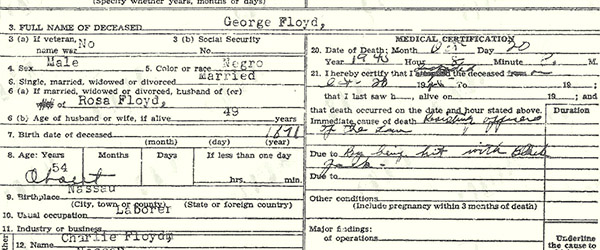
Detail, Certificate of Death, George Floyd, Florida, 1945
THE BOSTON GLOBE
Unearthing the stories of yesterday’s George Floyds | Melissa Nobles
"When we call the victims’ descendants to share our findings, they tell us ‘I never thought I’d get this call.’ The scars remain, and luckily, because we have found documents, so does proof." Dean Nobles discusses her ongoing research with the Civil Rights and Restorative Justice Project.
Commentary in The Boston Globe | Civil Rights and Restorative Justice Project
THE BOSTON GLOBE
A reckoning with language | Michel DeGraff
“People have always been aware of the power of language to discriminate, to dominate, but also to liberate,” said Michel DeGraff, a self-described “activist linguist,” professor of linguistics at MIT, and founder of the transformative MIT-Haiti initiative. “I think it can only make for a better world if we become aware of the way that language has an impact on our society.”
Story at The Boston Globe | Michel DeGraff | MIT Haiti
BOSTON REVIEW
How a popular medical device encodes racial bias | Amy Moran-Thomas
Anthropologist Moran-Thomas analyzes the racial bias encoded in the design of standard pulse oximeters "as a case study of systemic racism in miniature." The devices, which measure blood oxygen levels, work by shining a light through the skin. The instrument works work well for people with light skin, but gives inaccurate readings for people with darker skin, a flaw that that can lead to serious medical consequences.
Full commentary at Boston Review
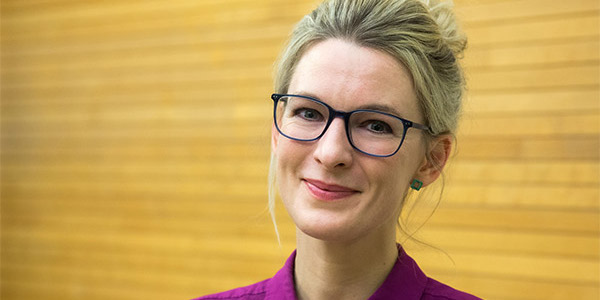
Amy Moran-Thomas, Associate Professor of Anthropology; photo by Jon Sachs
NEW MEDIA TECHNOLOGIES
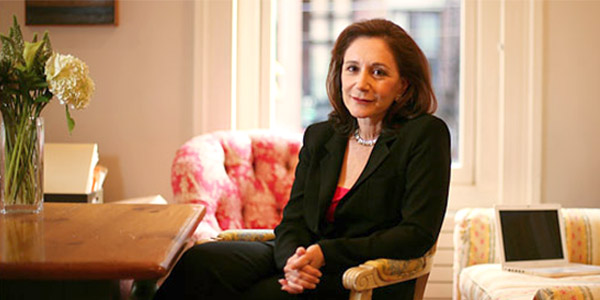
Sherry Turkle, Abby Rockefeller Mauze Professor of the Social Studies of Science and Technology; founding director of the MIT Initiative on Technology and Self.
WIRED
Zoom took over the world. This is what will happen next. | Sherry Turkle
There's the issue of eye contact. Sherry Turkle, professor of the social studies of science and technology at MIT and author of several influential books on our evolving relationships with technology, explains that in order to give other people the illusion of connection on a Zoom call, you have to deprive yourself of the same.
Story at Wired
THE WALL STREET JOURNAL
From 1720 to Tesla, FOMO never sleeps | William Deringer
New media technologies — newspapers in 1720, radio in the 1920s, the internet in the 1990s, social media and smartphone apps today — are "the cultural substrate in which a mania can grow," says MIT historian William Deringer.
Story at The Wall Street Journal
FORBES ONLINE
'Deepfake' Nixon discusses a moon-landing disaster that never happened | Fox Harrell
“Media misinformation is a longstanding phenomenon, but, exacerbated by deepfake technologies and the ease of disseminating content online, it's become a crucial issue of our time,” stated Fox Harrell, director of the MIT Center for Advanced Virtuality.
Story at Forbes
THE FUTURE OF WORK
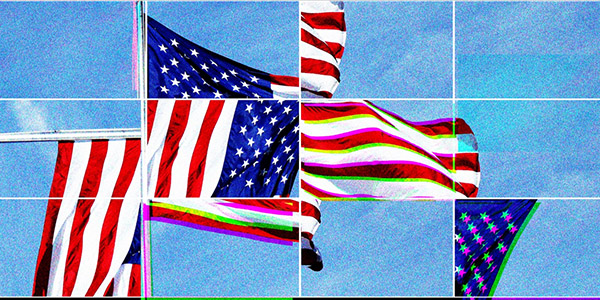
Illustration in The Atlantic
THE ATLANTIC
The workforce is about to change dramatically | David Autor
The boom times for the super-sector may be over, according to the economist David Autor, a co-chair of the MIT Task Force on the Work of the Future. In a new paper co-authored with MIT’s Elisabeth Reynolds, he forecasts that the rise of remote work — or what they call “telepresence” — will lead to a more homebound life that creates less work for others.
Story at The Atlantic | MIT Task Force on the Work of the Future
THE ECONOMIST
What more should antitrust be doing? | David Autor
As in the days of the Chicago school, other economists see these critiques as ignoring the role of efficiency. A recently published paper argues that globalisation and technological advances have concentrated economic activity in a small number of “superstar firms.” Because these firms are more productive, the industries which have seen the most of this concentration have also seen the fastest productivity growth.
Story at The Economist
THE NEW YORK TIMES
As jobs move online, retraining workers becomes a priority | David Autor
“This is the moment when we should make a significant public investment,” said David Autor, a labor economist at MIT, “when we should have a Marshall Plan for ourselves.”
Story at The New York Times

Via Quartz: AP Photo/Marcio Jose Sanchez
QUARTZ
How much trade is dodging Trump’s China tariffs? | David Atkin
MIT economist David Atkin and Amit Khandelwal, a Columbia University business professor, have examined how distortions in trade — like tariffs and their evasion — affect economic development in low-income countries. The two researchers also observed that there are surprisingly few studies on polices that reduce tariff evasion... “In the case of tariff collection, this would include mundane but important questions like should electronic systems be used at the border to process payments, or how are customs officials paid and incentivized."
Story at Quartz | Paper: How Distortions Alter the Impacts of Int'l Trade in Developing Countries
FORBES
Will autonomous vehicles bring a jobless future? | David Mindell
Mindell writes, "To imagine the future of work, you have to also imagine how people get to work. If we had believed the prognostications of Elon Musk and others, by 2018 we would be calmly commuting in driverless cars, reading or sleeping in the back seat as robotic chauffeurs smoothly whisked us along highways and city streets. That rapid change did not happen."
Commentary at Forbes
FAST COMPANY
Middle class jobs for non-college grads have disappeared from U.S. cities | David Autor
Middle-skill jobs have been declining across the U.S. since the 1980s in a shift mostly felt by non-college educated workers (and the majority of American adults do not have a four-year degree). MIT economist David Autor wanted to understand how this related to different regions.
Story at Fast Company
WBUR
Study shows cities are less prosperous for middle class, people of color | David Autor
The allure of American cities, like Boston, attracts millions of people each year with promises of higher wages and endless economic opportunities. But new research from MIT suggests that cities are no longer a sure pathway to prosperity as housing costs rise and jobs opportunities disappear for middle-class workers, especially people of color.
Story at WBUR
POLITICAL SCIENCE / SECURITY STUDIES 
Lanterns for remembrance, Hiroshima 2020
WBUR
Hiroshima's legacy 75 years later | Jim Walsh
MIT Research Associate Jim Walsh speaks to Here & Now's Robyn Young about the first use of an atomic weapon and the state of nuclear weapons today.
Conversation at WBUR
THE NEW YORK TIMES
Why the U.S. dropped atomic bombs on Japan | Richard J. Samuels
In a review of Unconditional: The Japanese Surrender in WWII, by Marsc Gallicchio, Samuels writes that the author's fresh take on the role of U.S. domestic politics reads like a geopolitical thriller and is “a sharp reminder of the power, imperfection, and politicization of historical narrative and the way debates can continue long after history’s witnesses have left the stage.”
Review at The New York Times
SLATE
Sleepwalking into the atomic age | Fred Kaplan PhD '83
The decision to bomb Hiroshima wasn’t a decision at all.
Commentary at Slate
THE NEW YORK TIMES
U.S. says most of China’s claims in South China Sea are illegal | M. Taylor Fravel
“The statement is a full-throated endorsement of the tribunal's ruling,” said M. Taylor Fravel, a political scientist at the Massachusetts Institute of Technology who studies China's territorial disputes and its military.
Story at the New York Times
THE NEW YORK TIMES
Why protest tactics spread like memes | Katharin Tai
Tai, a doctoral candidate in political science at MIT who studies Chinese foreign policy and the intersection of international politics and the internet, separated information sharing between Hong Kong and the United States into two categories.
Story at The New York Times
US NEWS
India believes deadly skirmish was part of a larger Chinese plan | M. Taylor Fravel
"It's clearly a new category of standoff," says Taylor Fravel. "This time, you have China deploying more troops in more places at the same time. Clearly there is a change."
Story at US News
PANDEMIC-RELATED MEDIA PUBLICATIONS
At-A-Glance List of Pandemic-related Media Publications from MIT SHASS
An ongoing list of commentaries from our School community to inform policy and to increase public understanding of the pandemic.
Collected Publications
2020 ELECTION
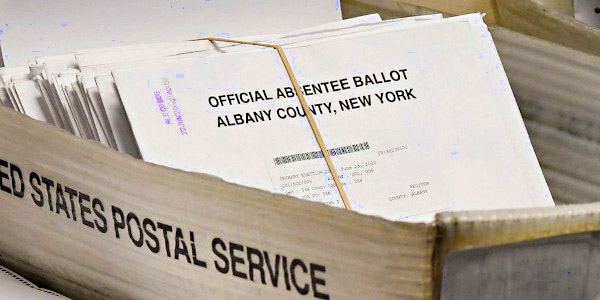
Absentee ballots waiting to be counted; photo by Hans Pennink/AP
THE ATLANTIC
The 'Blue Shift' will decide the election | Charles Stewart III
The blue shift remains little studied and poorly understood. In a 2015 paper, Foley and the MIT political scientist Charles Stewart III found evidence that the blue shift was correlated with the number of provisional ballots cast.
Story at The Atlantic
THE NEW YORK TIMES
Vote Counts Change. Please Don't Panic.
"What concerns [MIT election expert Charles Stewart] isn't voting fraud, but rather how a changing vote total that tends to move in one direction can be misunderstood by an anxious public and exploited by politicians eager to preserve any advantage. 'It may start to look as if, when an election goes into extra innings, one of the two teams is given extra at-bats."
Story at the New York Times
ASSOCIATED PRESS
'Poor People's Campaign' eyes low-income voters in 13 states | MIT Election Lab
A coalition of activists, unions, and religious leaders inspired by the Rev. Martin Luther King Jr.’s last organizing effort said Tuesday new data suggest low-income voters in key states could swing some U.S. Senate races.
Story at the Associated Press
THE NEW YORK TIMES
Mail-in voting has higher rate of 'lost votes’ than in-person voting | Charles Stewart III
A new paper by MIT elections expert Stewart suggests that the outcome of this year’s presidential election — and the problem known as the “lost vote,” in which legitimate ballots go uncounted — could fuel postelection confusion.
Story at The New York Times
THE LA TIMES
Trump can’t postpone the election, but he and the GOP might starve it
"The House months ago approved $3.6 billion to aid local and state elections officials in dealing with an expected flood of mail-in ballots this fall, something that threatens to overwhelm elections officials in states where voting by mail is a relative novelty. The money has stalled in the Republican-controlled Senate — part of the larger stalemate over a new round of help for people and businesses devastated by the economic impact of the pandemic."
Story at The LA Times
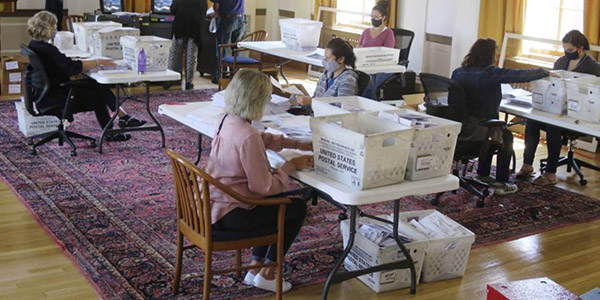
Election workers process absentee ballots for the primary elections in Portland, Maine / David Sharp / AP
ABC NEWS
Counting all ballots in November may take several weeks | Charles Stewart III
Given the failture of the Senate to help the States develop infrastructure to process the massive increase in mail-in-voting, Stewart, director of the MIT Election Data & Science Lab, is concerned that the time need to count all ballots properly, and the resulting confusion, could last for "a couple weeks, maybe longer." The resulting acrimony, he said, "could make Florida in 2000 look like a garden party."
Story at ABC News
WGBH
Understaffed polling stations and vote processing hurdles | Charles Stewart III
Stewart, the Kenan Sahin Distinguished Professor of Political Science at MIT, pushed back on the idea that mail-in voting itself is the issue. He expressed concern instead about how understaffed polling stations and processing hurdles could delay results, and potentially sow doubt in the public's mind.
Commentary at WGBH
THE BOSTON GLOBE
Should voters rank their preferences instead? | Jesse Clark
“Without some voter outreach and investing both time and money...you won't have a system that improves much on what we already have,” said Clark, a PhD candidate at MIT who has closely studied ranked-choice voting.
Story at The Boston Globe
THE WASHINGTON POST
Mail-in voting could accidentally disenfranchise millions of voters | Charles Stewart III
There is evidence that mail-in voting has the unintended consequence of disenfranchising of millions of eligible voters. “The pipeline that moves mail ballots between voters and election officials is leaky,” the study concluded.
Story at The Washington Post
HEALTH AND HEALTHCARE

"The drug remdesivir has been distributed in some areas with a weighted lottery system determining which patients get the treatment first." Photo: Gilead Sciences, via Reuters
THE NEW YORK TIMES
Who gets the Covid-19 vaccine first? Here's one idea | Parag Pathak
After Dr. Truog and his colleagues published a paper on ventilator distribution, Dr. Truog said, “we got a call from an economist at MIT.” The economist, Parag Pathak, told Truog that he and other economists had spent years thinking about how to allocate resources, and have developed and successfully used weighted lotteries. “There is no way we can vaccinate everybody, so we have to think about what's fair and what's just.”
Story at The New York Times
THE NEW YORK TIMES
How do seniors calculate virus risk? | Acemoglu, Chernozhukov, Werning
Economists at MIT wrote a recent paper endorsing age-targeted lockdowns. They proposed protecting people over 65 by having them isolate for an estimated 18 months until a vaccine becomes available; younger people, facing less health risk, would return to work.
Story at The New York Times
THE WASHINGTON POST
Continue fighting the virus while seeking a vaccine | Robin Wolfe Scheffler
"Vaccine development can’t come in a vacuum. It needs to be combined with addressing the social and political factors that exacerbate disease and limit the access of many Americans to basic medical care."
Commentary at The Washington Post
EDUCATION
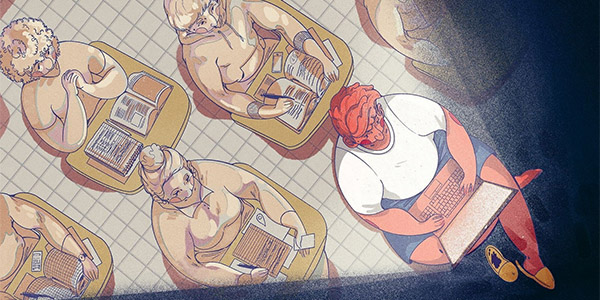
Islenia Milien for NPR
NPR
Can online learning be better this fall? | Justin Reich
Reich says he'd prefer to see each district give teachers the time, training and empowerment to plan online teaching right, rather than rushing for a prefabricated solution. "I think adequate turnkey instruction may be possible," Reich says. "I don't think it's responsible to promise excellent turnkey curriculum and training."
Story at NPR
SOCIAL SCIENCE RESEARCH COUNCIL
Training the Covid-19 cohort | Fotini Christia and Chappell Lawson
The authors address changes in research and impacts of the pandemic on fieldwork and research focus, note ind opportunities in newly broadened methodologies, but warn of the dangers of neglecting non-Covid research and the traditional fieldwork that still remain essential to social science. They outline ways to support the “Covid-19 cohort” — graduate students whose research has been undermined or transformed by global pandemic—in order to keep from losing an entire generation of fieldwork-based scholars and scholarship.
Full commentary at SSRC
FINANCIAL TIMES
Coronavirus and the dream of an American Eden | Sherry Turkle
Prof. Turkle writes, "What Covid-19 brought to me was the depth of America's ability to deny science when it is not politically expedient. Then the murder of George Floyd brought a historic, tragic lesson that we have refused to learn. I am an activist, a progressive, and afraid to be in crowds just as my country faces historic protests and a brush with authoritarianism more serious than any I have seen in my lifetime."
Commentary in The Financial Times (subsc req)
WASHINGTON POST
Trump administration's move on visas is 'dream-crashing' | Vipin Narang
The announcement makes international students a pawn in the administration's push to get universities to fully reopen in the fall, said Vipin Narang, a political scientist at MIT. The level of anxiety it has induced is “incalculable,” he said. “It really does enrage me.”
Story at The Washington Post
PANDEMIC ECONOMICS
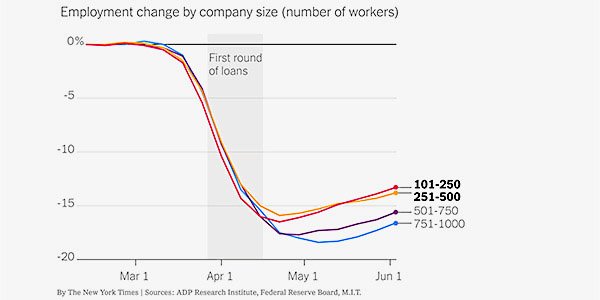
"In mid-April, something strange started happening in the U.S. economy: Smaller companies — those with fewer than 500 workers — started rehiring workers more quickly than larger companies. You can see the pattern in this chart. During a typical crisis, large companies have important advantages, like more cash on hand and better digital operations. So why were smaller companies apparently faring better during the lockdowns this spring? The answer, it appears, is government policy." — Bloomberg News article
BLOOMBERG
Small-business loans saved as many as 3.2 million U.S. jobs | David Autor
Hundreds of billions of dollars in government loans to small businesses helped save between 1.4 million and 3.2 million jobs during the coronavirus pandemic, according to a new study by MIT and Federal Reserve researchers.
Story at Bloomberg News
WGBH
Why the US economy needs immigrants | Jonathan Gruber
President Trump is extending a moratorium on H-1B visas for skilled workers, arguing the move will help stop the spread of Covid-19. Gruber called in to Boston Public Radio to talk though all the avenues President Trump is using to try and curb immigration, and highlight how international workers and students fuel the U.S. economy.
Commentary at WGBH
BLOOMBERG
Japan's women disproportionately hurt by Covid-19 slump | Shinnosuke Kikuchi
After helping fuel a remarkable surge in Japan's employment rolls — in the face of a declining population — women have become the hardest hit in the nation's Covid-19 recession.
Story at Bloomberg
THE NEW YORK TIMES
Back to work | David Autor
"In all, the P.P.P. saved between 1.5 million and 3.5 million jobs, according to a new study by researchers at MIT, the Federal Reserve and the ADP Research Institute....'This is very expensive,' David Autor, an MIT professor and one of the economists who did the new study. But, he added, 'we got something for it.'"
Story at The New York Times
BBC
India coronavirus: Videos by Nobel laureate help fight pandemic | Abhijit Banerjee
Prof Banerjee, who is a respected public figure in his native West Bengal state, recorded eight such 2.5 minute-long public health video messages in the Bengali language from his Massachusetts home. More than two-thirds of West Bengal's 91 million people live in villages.
Story at the BBC
The Media + Awards Digest is a section
of Said and Done, the School's online digest.
EXPLORE
Follow us




Subscribe to Said and Done
10 issues a year
Making a Better World
Basic Research | Citizenship | Computing and AI | Education
Health of the Planet | Human Health | The Human Factor
Arts Innovation | Social Innovation
Perspectives for the Pandemic
Explore the Series
Making a Just Society
Explore the Resources
Solving Climate
Browse the Series
Ethics, Computing, and AI
Browse the Series
Computing and AI: Humanistic Perspectives from MIT
Browse the Series
MIT Climate website
A major source of research, innovation, and discussion
Join us!
SHASS on MIT News
Research and Features
MIT Campaign for a Better World
Story | Join Us

Published by SHASS Communications
Office of the Dean, MIT School of Humanities, Arts, and Social Sciences
Editor and Designer: Emily Hiestand
Publication Associate: Alison Lanier
Media Relations Manager: Stephen Oakes
Published 13 August 2020